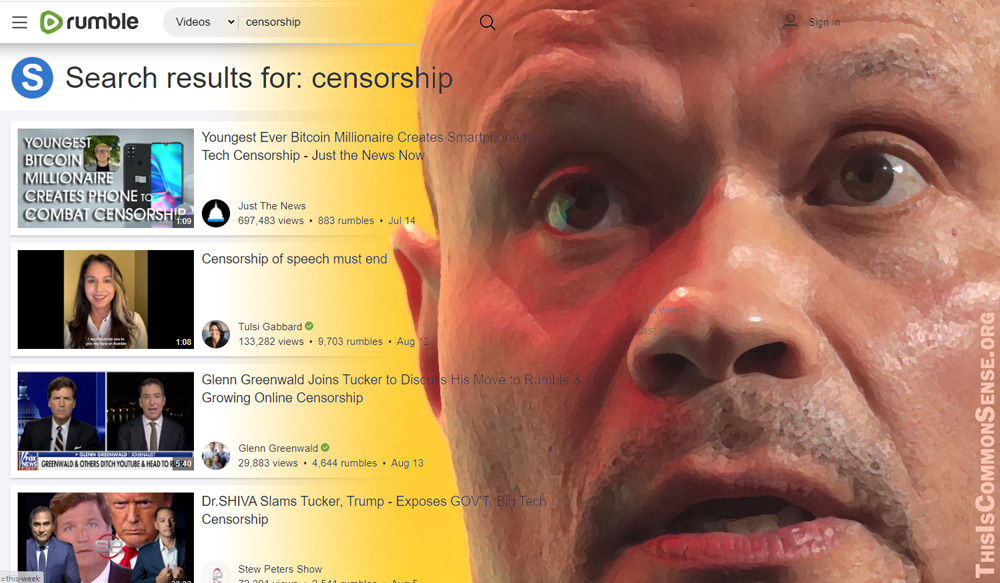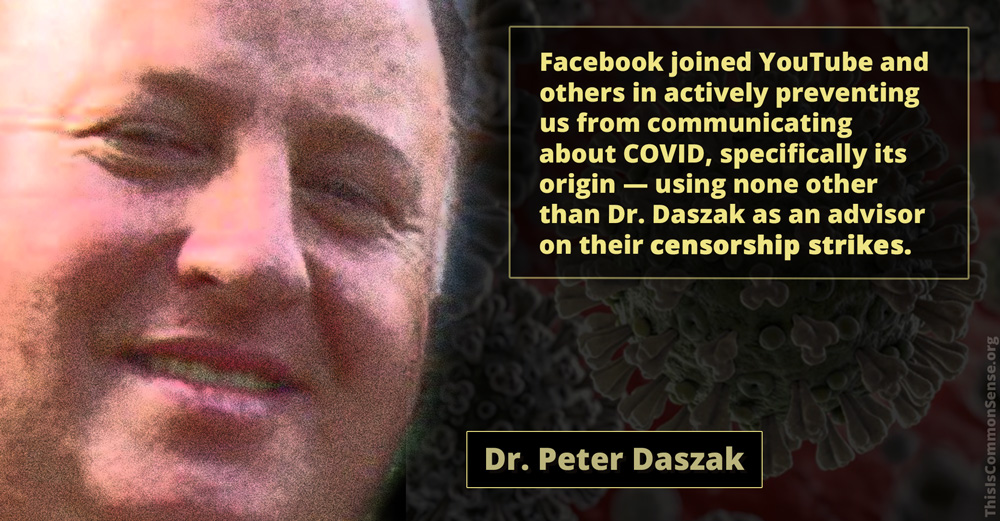“It’s one thing to let people post UFO content about crop circles in Arkansas,” Ciaran O’Connor was quoted in a recent Washington Post article, talking about YouTube competitor Rumble. “It’s another to allow your platform to be used by someone claiming vaccines are actively harmful and that people should not take them based on conspiracies and misinformation.”
As a cited expert for the Post’s hit piece, O’Connor is the big gun, whom reporter Drew Harwell uses to conclude his vivisection of the upstart video platform: “There’s a duty of care and responsibility as your platform grows and scales up.”
After a year and a half of government lies and flip flops about the novel coronavirus and its treatments, coupled with Big Tech censorship, we must not allow O’Connor’s bald “vaccine” assertions to go unnoticed, but we have other fish to fry.
Sizzling on the platter? Ciaran The Expert.
Who is he?
Well, writes Harwell, O’Connor’s “an analyst with the Institute for Strategic Dialogue, a counter-extremism think tank in London that has worked with Google on a European fund targeting online hate speech.”
Rumble, claims O’Connor, has “become one of the main platforms for conspiracy communities and far-right communities in the U.S. and around the world.”
But let us consult one of those right-wingers, Rumble investor and online commentator Dan Bongino, to learn something more about this “Institute for Strategic Dialogue.”
Bongino points out that the institute gets its funding from various governments, including our own, as well as from Rumble’s competitors Facebook and YouTube.
And several more subdivisions of YouTube’s parent company also support this critic of Rumble.
The Post, of course, disclosed none of that.
You know, cuz Journalism.
This is Common Sense. I’m Paul Jacob.
—
See all recent commentary
(simplified and organized)





